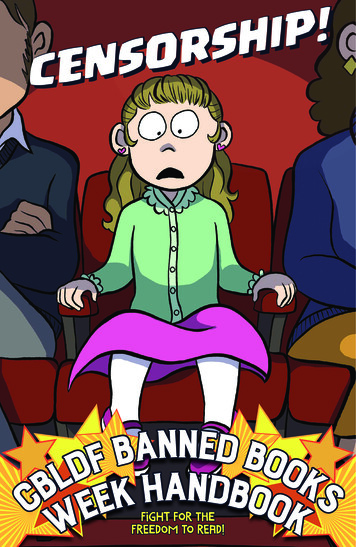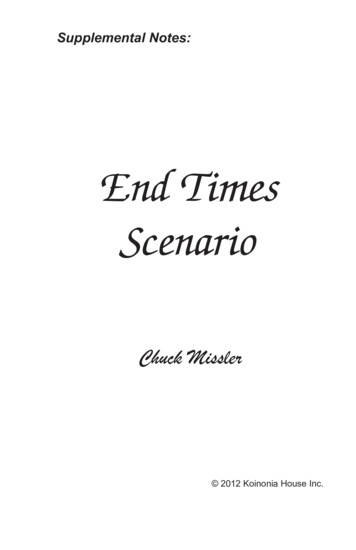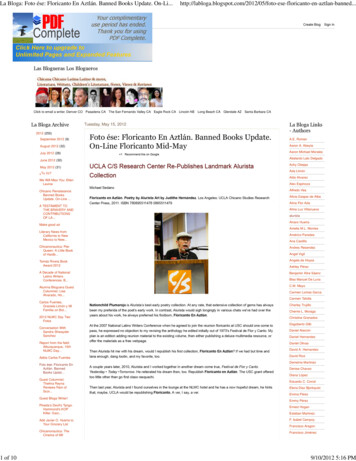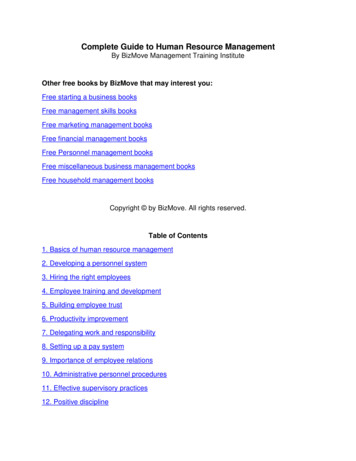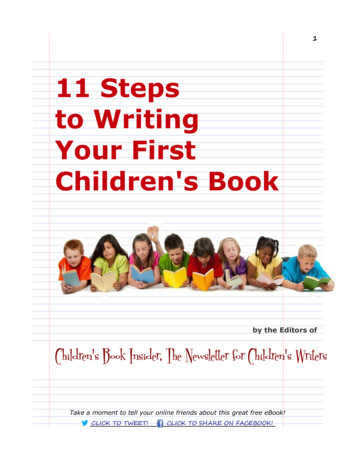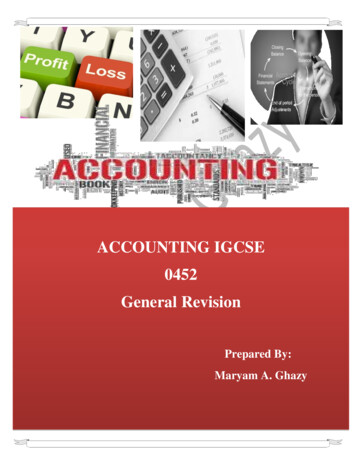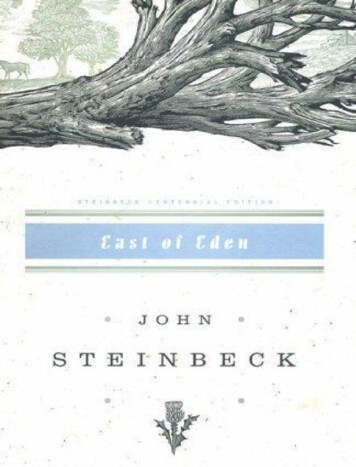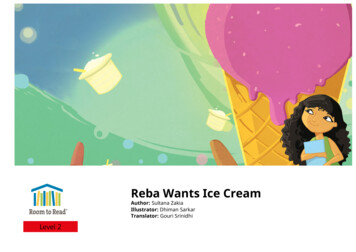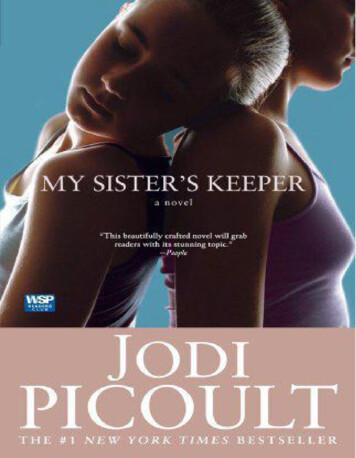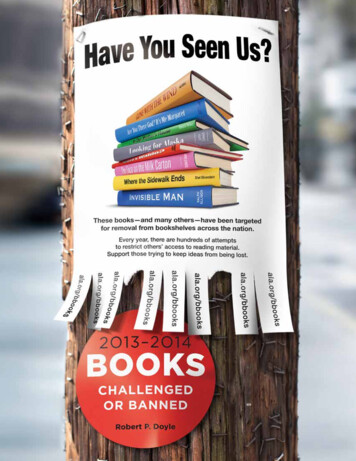
Transcription
3BOOKS CHALLENGED OR BANNED, 2O13–2O14
This freedom, not only to choose what we read, butalso to select from a full array of possibilities, is firmlyrooted in the First Amendment to the U.S. Constitution,which guarantees freedom of speech and freedom ofthe press. Although we enjoy an increasing quantity andavailability of information and reading material, we mustremain vigilant to ensure that access to this material ispreserved; would-be censors who continue to threatenthe freedom to read come from all quarters and allpolitical persuasions. Even if well intentioned, censorstry to limit the freedom of others to choose what theyread, see, or hear.Sex, profanity, and racism remain the primarythe book to stay on the library shelves and evencategories of objections, and most occur in schoolswhen the person is a lone protester, the censorshipand school libraries. Frequently, challenges areattempt is real. Someone has tried to restrictmotivated by the desire to protect children. Whileanother person’s ability to choose. Challengesthe intent is commendable, this method of protectionare as important to document as actual bannings,contains hazards far greater than exposure to thein which a book is removed from the shelves of“evil” against which it is leveled. U.S. Supreme Courta library or bookstore or from the curriculum atJustice William Brennan, in Texas v. Johnson, said,a school. Attempts to censor can lead to voluntary“If there is a bedrock principle underlying the Firstrestriction of expression by those who seek to avoidAmendment, it is that the Government may notcontroversy; in these cases, material may notprohibit the expression of an idea simply becausebe published at all or may not be purchased bysociety finds the idea itself offensive or disagreeable.”a bookstore, library, or school district.Individuals may restrict what they themselves or theirchildren read, but they must not call on governmentalor public agencies to prevent others from readingor viewing that material.It should be noted that this bibliography is incompletebecause many prohibitions against free speech andexpression remain undocumented. Surveys indicateup to 85 percent of actual challenges to libraryThe challenges documented in this list are not broughtmaterials receive no media attention and remainby people merely expressing a point of view; rather,unreported. Moreover, this list is limited to booksthey represent requests to remove materials fromand does not include challenges to magazines,schools or libraries, thus restricting access to themnewspapers, films, broadcasts, plays, performances,by others. Even when the eventual outcome allowselectronic publications, or exhibits.BOOKS CHALLENGED OR BANNED, 2O13–2O144
This bibliography represents books challenged, restricted,removed, or banned in 2013 and 2014 as reported in theNewsletter on Intellectual Freedom from May 2013 to March 2014.(Dates prior to May 2013 indicate the controversy began earlier, but continues into 2013 or 2014.)Alexie, ShermanThe Absolutely True Diaryof a Part-Time IndianTHORNDIKE PRESS; LITTLE, BROWNRemoved as required reading in a Queens,N.Y. middle school (2013) because thebook included excerpts on masturbation.The book, which tells the story of a NativeAmerican who transfers into an all-whitehigh school, won the 2007 National BookFoundation award for Young People’sLiterature. Challenged on the tenth-graderequired reading list at Skyview HighSchool in Billings, Mt. (2013) because,“This book is, shockingly, written by aNative American who reinforces all thenegative stereotypes of his people anddoes it from the crude, obscene, andunfiltered viewpoint of a ninth-gradergrowing up on the reservation.” Pulledfrom the Jefferson County, W.V. Schools(2013) because a parent complained aboutthe novel’s graphic nature. Challenged ina Sweet Home, Oreg. Junior High Englishclass (2014) because of concerns about itscontent, particularly what some parentssee as the objectification of women andyoung girls, and the way alternative lessonswere developed and presented. Parents ofthe eighth-graders in the language artsclasses received information summarizingthe novel’s most controversial issuesbefore the unit started and had the optionof asking for an alternative assignment.Source: Sept. 2013, p. 185; Jan. 2014, pp. 10–11, 14;Mar. 2014, p. 49.Allende, IsabelAtwood, MargaretDIAL PRESS TR ADE PAPERBACKMCCLELL AND AND STEWARTChallenged in the Watauga County, N.C.High School (2013) curriculum becauseof the book’s graphic nature. After afive-month process, the book was fullyretained at a third and final appealhearing. Published in 1982, the bestsellerwas critically acclaimed and catapultedAllende to literary stardom. The novel wasnamed Best Novel of the Year in Chile in1982, and Allende received the country’sPanorama Literario award. It has beentranslated into over thirty-seven languages.Challenged, but retained as requiredreading for a Page High SchoolInternational Baccalaureate class and asoptional reading for Advanced Placementreading courses at Grimsley High Schoolin Guilford County, N.C. (2012) becausethe book was “sexually explicit, violentlygraphic and morally corrupt.” Some parentsthought the book is “detrimental toChristian values.” The novel won the 1985Governor General’s Award in Canada andthe first Arthur C. Clarke Award in 1987;it was also nominated for the 1986 NebulaAward, the 1986 Booker Prize, and the 1987Prometheus Award. It has been adaptedfor the cinema, radio, opera, and stage.The House of the SpiritsSource: Jan. 2014, pp. 27–28; Mar. 2014,pp. 66–68.Anaya, RodolfoBless Me, UltimaWARNER BOOKSRetained in the Teton High Schoolsophomore English class in Driggs, Idaho(2013) despite concerns about the novel’smature content. Anaya’s best-knownwork, it was awarded the prestigiousPremio Quinto Sol. President George W.Bush awarded Anaya the National Medalof Arts in 2002. In 2008, it was one oftwelve classic American novels selectedfor The Big Read, a community-readingprogram sponsored by the NationalEndowment for the Arts, and in 2009,it was in the list of the United StatesAcademic Decathlon.Source: Jan. 2014, pp. 26–27.The Handmaid’s TaleSource: Jan. 2013, p. 11; Nov. 2013, pp. 244–45.Aylisli, AkramStone DreamsNOVELL A PUBLISHED IN DRUZHBANARODOV (FRIENDSHIP OF THE PEOPLES)Burned (2013) at various locations aroundAzerbaijan. The novella is sympathetic toArmenians and recounts Azeri atrocitiesin the war between Azerbaijan andArmenia twenty years ago. AzerbaijaniPresident Ilham Aliyev stripped theauthor of his title of “People’s Writer”and the pension that goes with it. Apro-government political party in Baku,Azerbaijan, announced that it would pay 12,700 to anyone who cuts off the earof the 75-year-old novelist for portrayingAzerbaijanis as savages.Source: May 2013, pp. 108–9.5BOOKS CHALLENGED OR BANNED, 2O13–2O14
Chbosky, StephenEllison, RalphPOCKET BOOKSR ANDOM HOUSERemoved from eighth-grade classroomsat Hadley Junior High School in Glen Ellyn,Ill. (2013) because of concerns aboutsexually explicit content and language.In June, the Glen Ellyn Elementary District41 School Board overturned the decisionand returned the book to the libraryshelves. Most board members were willingto reinstate the book after assurancesfrom district administrators that a revisedparental notification letter would be sentat the start of each school year warningparents that their children could begetting access to sometimes maturecontent in classroom libraries. Publishedin 1999, the coming-of-age tale is aboutan introspective fifteen-year-old highschool freshman that writes letters to ananonymous friend. Intelligent beyond hisyears, he is an unconventional thinker; yet,as the story begins, Charlie is also shy andunpopular. In 2012, a film adaptation ofthe novel was released to positive criticalresponse and commercial success. Thefilm won numerous awards. Challengedon a summer reading list for incomingfreshmen at Wharton High School inTampa, Fla. (2013) because “it deals withsexual situations and drug use.”Challenged, but retained on the shelvesof the Randolph County, N.C. Schools’ highschool libraries (2013) despite the book’sstrong language. Ellison won the NationalBook Award for Fiction in 1953. In 1998,the Modern Library ranked the novelnineteenth on its list of the 100 bestEnglish-language novels of the twentiethcentury. Time magazine included the novelin its TIME 100 Best English-languageNovels from 1923 to 2005.The Perks of Being a WallflowerSource: July 2013, pp. 143–44; Sept. 2013,pp. 184, 201.Ellis, Elisabeth Gaynor,and Anthony EslerWorld HistoryPRENTICE-HALLChallenged, but retained in the VolusiaCounty, Fla. high schools (2013) despitea thirty-two-page chapter on “MuslimCivilizations” that covers the rise of Islamand the building of a Muslim empire.Protesters believe the Volusia high schoolsare using the world history textbook to“indoctrinate” students into the Islamicreligion and recommend student volunteerstear the chapter out of the 1,000-page book.Invisible ManSource: Nov. 2013, pp. 242–43.Erlbach, ArleneThe Middle SchoolSurvival GuideWALKER & CO.Removed from the Walnut Street Schoollibrary in Delanco, N.J. (2013) because “thebook provided too much information aboutsexual issues for middle school students.”Source: July 2013, p. 141.Follett, KenThe Pillars of the EarthMACMILL ANPulled from a senior English honorsclass in the Troy, Penn. Area SchoolDistrict (2013) after parent objections.The objections concerned material of asexual nature in the book that the parentsdeemed inappropriate. Published in 1989,the historical novel, set in the middle ofthe twelfth century, is about the buildingof a cathedral in the town of Kingsbridge,England. The book was selected forOprah’s Book Club in 2007.Source: Nov. 2013, pp. 219–20.Frank, AnneAnne Frank:The Diary of a Young GirlDOUBLEDAYChallenged, but retained in the Northville,Mich. middle schools (2013) despiteanatomical descriptions in the book. Beforethe school district’s vote, ten free speechorganizations signed a letter urging theNorthville School District urging to keepthe book. The letter, which was sent to thesuperintendent and board of educationmembers, “emphasized the power andrelatability of Frank’s diary for middleschool students. Frank’s honest writingsabout her body and the changes she wasundergoing during her two-year periodof hiding from the Nazis in Amsterdamcan serve as an excellent resource forstudents themselves undergoing thesechanges.” The diary has now beenpublished in more than sixty differentlanguages and is on several lists of thetop books of the twentieth century.Source: July 2013, p. 163.Gaiman, NeilNeverwhereBBC BOOKSTemporarily removed from theAlamogordo, N. Mex. High School libraryand curriculum (2013) because of whatone parent calls “inappropriate content.”The British author wrote in The Guardian:“Well-meaning adults can easily destroy achild’s love of reading. Stop them readingwhat they enjoy or give them worthy-butdull books that you like—the twenty-firstcentury equivalents of Victorian ‘improving’literature —you’ll wind up with a generationconvinced that reading is uncool and,worse, unpleasant.”Source: Nov. 2013, pp. 217–18.Source: Jan. 2014, pp. 9–10.BOOKS CHALLENGED OR BANNED, 2O13–2O146
Green, JohnMorrison, ToniSPEAKKNOPF; NALChallenged in the Verona, N.J. HighSchool curriculum (2013) because a parentfound the sexual nature of the storyinappropriate. The book was a New YorkTimes bestseller and won the 2006 MichaelL. Printz Award for excellence in youngadult literature.Challenged in Legacy High School’sAdvanced Placement English classes inAdams County, Colo. (2013) because itwas a “bad book.” A notice was sent hometo let parents and students know whatthey would be reading and why and analternate assignment was offered to thosewho wanted it. Half a dozen students ofabout 150 opted to read one of thealternative texts and received instructionon those works outside of class time.Challenged on a suggested reading listfor Columbus, Ohio high-school students(2013) by the school board presidentbecause it is inappropriate for the schoolboard to “even be associated with it.”A fellow board member described thebook as having “an underlying socialistcommunist agenda.” Morrison is an Ohionative, Pulitzer Prize-winning author,and Nobel laureate.Looking for AlaskaSource: Nov. 2013, pp. 218–19.Ignatow, AmyThe Popularity PapersAMULETChallenged, but retained at two Prosser,Wash. elementary school libraries (2013).Only available to fifth-graders, the storyis written in a journal format and drawnby the two main characters who wantto unlock the secrets to being popularin middle school. One of the girls has twofathers; the other has only a mother. TheAmerican Library Association’s RainbowProject selected it as a top-ten title for2011. It was a 2010 National ParentingPublications Association Gold Awardwinner and selected by the ChicagoPublic Library as one of the 2011 “Bestof the Best” books.Source: May 2013, p. 124.Lyga, BarryI Hunt KillersLITTLE, BROWN BOOKS FOR YOUNG READERSChallenged on the Lexington, Ky. HenryClay High School reading list (2013)because it is too violent for teens. Thebook is listed on the Kentucky BluegrassAwards for ninth through twelfth grades.Source: Jan. 2014, p. 10.Bluest EyeSource: Sept. 2013, p. 184; Nov. 2013, p. 219.Myers, Walter DeanFallen AngelsSCHOL ASTICChallenged on the Danbury Middle Schoolreading list in Toledo, Ohio (2013) becauseof inappropriate language. The book depictsthe reality of the Vietnam War, withsometimes gruesome descriptions ofcombat and frequent foul language fromsoldiers. It won the 1988 Coretta ScottKing Award.Source: May 2013, p. 104.Naylor, Phyllis ReynoldsIntensely AliceATHENEUM BOOKS FOR YOUNG READERS;SIMON PULSEChallenged, but retained in the Buffalo,Mo. middle school (2013) despite theprincipal’s formal complaint againstseveral “very questionable pages” featuringa safe sex scene.Source: May 2013, pp. 123–24.7BOOKS CHALLENGED OR BANNED, 2O13–2O14Othman, Norani, ed.Muslim Women and theChallenges of Islamic ExtremismSISTERS IN ISL AMBanned by the Malaysian Ministry ofHome Affairs (2008) on the grounds thatit was “prejudicial to public order” andthat it could confuse Muslims, particularlyMuslim women. The Malaysian HighCourt overturned the ban on January 25,2010, and on March 14, 2103, the FederalCourt threw out the government’s appealto reinstate the ban.Source: May 2013, pp. 125–26.Rivera, TomasAnd the Earth Did NotDevour HimHAMPTON-BROWNChallenged, but retained as part of theClarke County, Ga. schools class readinglist (2013) despite “a paragraph in thebook [is] full of offensive language.” Thebook is the story of a Mexican boy’s life ina migrant family in the 1940s and 1950s,with themes of family life and tensions,getting an education, and growing up. In1970 Rivera’s book won the first Quinto Solliterary award, established by a Californiapublisher to encourage and promoteChicano authors.Source: Sept. 2013, pp. 184–85; Nov. 2013,p. 244.Rosen, LucyI Am BaneHARPERFESTIVALChallenged, but retained at the Geneva, Ill.Public Library (2013) despite concerns thatthe images are too scary for young readers.The film The Dark Knight Arises inspiredthe book.Source: Jan. 2014, p. 25.
Rowell, RainbowEleanor & ParkST. MARTIN’S PRESSRetained, despite a challenge by thechairman of the Anoka-Hennepin, Minn.School Board (2013) because parents of astudent objected to the book’s content,citing its use of profanity and its treatmentof sexuality. The Anoka County Libraryhad scheduled a visit by the author, butthe event was cancelled due to thecontroversy. Set in a poor Omahaneighborhood, the story concerns twooutsider teens in the 1980s who find acommon bond in music amidst poverty,bullying, abuse, racism, and buddingsexuality. Selected by National PublicRadio as a 2013 Great Read.Source: Nov. 2013, pp. 216–17; Jan. 2014,pp. 25–26.St. Stephen’s Community HouseThe Little Black Book for Girlz:A Book on Healthy SexualityANNICK PRESSChallenged at the Taft High library inLincoln City, Oreg. (2013) because “it issimply too graphic for a seventh grader.”Each library book is “run by a districtcommittee made up of district staff andcommunity members.”Source: July 2013, pp. 141–42.Satrapi, MarjanePersepolis:The Story of a ChildhoodPANTHEON BOOKSRemoved, via a district directive, fromall Chicago, Ill. public schools (2013) dueto “graphic illustrations and language”and concerns about “developmentalpreparedness” and “student readiness.”Seventh- and eleventh-grade studentsstudy the graphic novel about the author’sexperience growing up in Iran during theIranian revolution as part of ChicagoPublic Schools’ Literacy ContentFramework. As the news spread of thedirective, students mobilized a mediacampaign in opposition to “banning abook that’s all about the freedom ofspeech.” Students took to their Facebookand Twitter accounts, checked out alllibrary copies of the book, wrote blogs,sent e-mails, wrote investigative articlesfor the student newspaper, contactedthe author, staged protests, and appearedon local radio and television programs.Eventually the school issued a letter tellinghigh school principals to disregard theearlier order to pull the book. The bookwas a New York Times Notable Book, aTime Magazine “Best Comix of the Year,”and a San Francisco Chronicle and LosAngeles Times bestseller. A film versionwas nominated for Best Animated Featureat the 80th Academy Awards in 2007.Source: May 2013, pp. 103–4.Stone, Tanya LeeA Bad Boy Can Be Goodfor a GirlR ANDOM HOUSEChallenged, but retained at the Currituck,N. C. High School library (2013). This firstnovel by Stone, written in a poetry format,follows the story of three girls who fall forthe same bad boy intent on seducing everygirl in school.Walker, AliceColor PurpleHARCOURT BR ACE JOVANOVICHChallenged, but retained as a BrunswickCounty, N.C. Advanced Placement Englisheleventh-grade assignment (2013).Language and sexuality or “obscenity”were most often cited as the reason for themajority of the unofficial complaints andcriticisms, as was whether or not the book,a Pulitzer Prize winner that deals withissues of racism, violence against womenand rape, has literary value that was ageappropriate for the students.Source: Jan. 2014, p. 12; Mar. 2014, p. 66.Winter, JeanetteNasreen’s Secret School:A True Story from AfghanistanBEACH L ANE BOOKSChallenged in Johnson City, N.Y. schoolsas a suggested reading (2013) becauseof violent illustrations and storyline. Thebook is about the Taliban taking controlof an Afghan village and prevents girlsfrom going to school. After Nasreen’sfather is kidnapped and presumed killed,her grandmother smuggles her each dayto an underground school where she canlearn to read and write.Source: Jan. 2014, pp. 11–12.Winter, JeanetteThe Librarian of Basra:A True Story from IraqHMH BOOKS FOR YOUNG READERSChallenged in Johnson City, N.Y. schoolsas a suggested reading (2013) because ofviolent illustrations and storyline. The bookis about a librarian who sneaks books outof a library during the U.S. bombings inIraq. The librarian works with membersof the community to keep the books safeuntil the war is over and a new library canbe built.Source: Jan. 2014, pp. 11–12.Source: Nov. 2013, p. 243.BOOKS CHALLENGED OR BANNED, 2O13–2O148
9BOOKS CHALLENGED OR BANNED, 2O13–2O14
Each day, all across the country, one of our most basicfreedoms—the right to read—is in danger. In communitieslarge and small, censorship attempts threaten toundermine our freedom to read. Without our constantsupport, the First Amendment freedoms that we sooften take for granted—the right to read, explore ideas,and express ourselves freely—are at risk.The First Amendment guarantees that each of usguide their own children’s reading, that right doeshas the right to express our views, including opinionsnot extend to other people’s children. Similarlyabout particular books. At the same time, the Firsteach adult has the right to choose his or her ownAmendment also ensures that none of us has thereading materials, along with the responsibilityright to control or limit another person’s ability toto acknowledge and respect the right of othersread or access information. Yet when individuals orto do the same.groups file formal written requests demanding thatlibraries and schools remove specific books fromthe shelves, they are doing just that—attemptingto restrict the rights of other individuals to accessthose books.When we speak up to protect the right to read,we not only defend our individual right to freeexpression, we demonstrate tolerance and respectfor opposing points of view. And when we takeaction to preserve our precious freedoms, weThe rights and protections of the First Amendmentbecome participants in the ongoing evolution ofextend to children and teens as well as adults. Whileour democratic society.parents have the right—and the responsibility—toBOOKS CHALLENGED OR BANNED, 2O13–2O1410
Act now to protect your right to read.Here are three ways that you can get involved:Stay InformedBe aware of what’s happeningThe best way to fight censorship is tobe aware that it’s happening. When youencounter it, be prepared to speak upor let others know.Ask the people on the front lines —librarians, teachers, and school principals— if there are any current attempts tochallenge or ban books or other materials.If they have support groups or informationlists, ask to join them.Legislators and public officials oftenintroduce legislation to restrict access tobooks and other materials in libraries,schools, and bookstores. Let officials knowthat there are citizens actively opposed todemands to restrict or remove books inschools and libraries.Attend school board, library board,and PTA meetingsYou can speak up about the importance of freespeech to education in a democratic society.As a regular participant in gatherings,you have the opportunity to learn aboutpolicies governing access to books andmaterials. You can witness firsthand whensomeone demands that a school or libraryremove a book or restrict access to books.11BOOKS CHALLENGED OR BANNED, 2O13–2O14Subscribe to print and onlinenews publicationsYou can stay current on First Amendmentrights and censorship issues.The ALA Office for IntellectualFreedom (ala.org/oif) publishesthe Newsletter on Intellectual Freedomand provides regular news updates viathe OIF blog, Twitter (twitter.com/oif)and the IFACTION mailing list(lists.ala.org/sympa/info/ifaction).The First Amendment Center(firstamendmentcenter.org) maintainsan online First Amendment )and provides breaking news about FirstAmendment issues via its RSS newsfeed.Join groups committed topreserving the right to readYou can participate by joining thesenonprofit organizations.The Freedom to Read Foundation(ftrf. org) is the only organization in theUnited States whose primary goal is toprotect and promote the First Amendmentin libraries by participating in litigationdealing with free expression in libraries andother venues. Members receive a quarterlynewsletter, The FTRF News.The American Booksellers Foundationfor Free Expression (abffe.org) promotesand protects the free exchange of ideas,particularly those contained in books,by opposing restrictions on the freedomof speech.The National Coalition AgainstCensorship (ncac.org) is an alliance offifty national nonprofit organizations,including literary, artistic, religious,educational, professional, labor, and civilliberties groups, that work to educate bothmembers and the public at large aboutthe dangers of censorship and how tooppose it.The Comic Book Legal Defense Fund(cbldf.org) works to protect free speech incomics by supporting First Amendmentrights for members of the comics community,fans, and professionals alike.The American Civil Liberties Union(aclu.org) works daily to defend andpreserve the individual rights and libertiesguaranteed by the Constitution, includingthe freedom of speech and freedom ofthe press. Local chapters and affiliates(aclu. org/affiliates) provide assistance tolocal communities.
Challenge CensorshipReport censorship to ALA’sOffice for Intellectual FreedomYou can help raise awareness of censorshipin your local community.ALA’s Office for Intellectual Freedomtracks attempts to remove or restrict booksacross the country. By reporting censorshipincidents, you can help to identify trends incensorship cases and document responsesand solutions to censorship. All identifyinginformation is kept strictly confidential.You can file reports online by going toala. org/challengereporting.Attend and participate inpublic hearingsYou can inform public officials that censorshipwon’t be tolerated in the community.By attending hearings, you can speak outin support of free expression and the rightto read freely. You can let officials knowthat there are citizens actively opposedto demands to restrict or remove booksin schools and libraries. Such attemptsseldom succeed when concerned citizensspeak out against censorship.Write letters to public officialsYou can write to public officials encouragingthem to preserve the freedom to read.Let them know that your rights and yourviews are entitled to the same respect asthose who seek to censor books. Writeto any public official that you believe canprevent the suppression of books in yourcommunity: your mayor, city council,other city officials, library board members,school board members, superintendentof schools, etc.Send a letter or an op-ed articleto local news organizationsYou can update community news outletswith information and opinion.Make sure you let reporters and editorsknow that there are members of thecommunity who oppose censorship andthe official suppression of ideas. Lettersto public officials, letters sent to localnews outlets, and comments posted onwebsites and blogs are effective ways toraise awareness.Work with community groupsYou can network with local organizationsfor support.Inform professional associations, civicorganizations, and religious groups aboutattempts to remove books from thecommunity’s library or school. You can askto speak to their membership about theimportance of preserving First Amendmentfreedoms. Or ask if you can contribute anarticle to the group’s newsletter or website.You can speak with the group’s leadersand ask them to lend public supportto efforts to protect the right to read inthe community.Form a coalition to opposecensorship in your communityYou can partner with others who supportthe right to read freely.Even a small number of persons can forman effective group to oppose censorship.Such groups allow members to shareresponsibility for attending meetings andconducting outreach efforts. By joiningtogether you can become a resourcefor the community as a whole. To readthe story of one exemplary communitycoalition, visit its website atwestbendparentsforfreespeech.webs.com.Seek assistance fromnational groupsYou can get guidance and support fromexperienced organizations.Get started by researching existing groupsso that you can benefit from their expertise.Check out the national organizations listedon page 10 for assistance, resources, andreferrals whenever you or your organizationaddresses demands to remove books fromlibraries or schools.Support Your Local Schools and LibrariesJoin Library Friends groupsand PTAsYou can become an advocate for communityeducation groups.Libraries and schools rely on volunteers andadvocates to accomplish their mission ofeducating young people. These groups alsoprovide information and lifelong learningopportunities to adults in the community.You can contribute by participating inFriends groups, PTAs, or volunteeringdirectly where your help will strengthenthese vital institutions.Participate in Banned Books WeekYou can promote the right to read by joiningin the celebration.Each year, libraries, schools, and bookstoresacross the nation celebrate the freedom toread by observing Banned Books Week. Thispublic event in September features authorvisits and readings from banned books.You can show your support for the freedomto read by attending these events. Pleasevisit ala.org/bbooks for more resourcesand information, or connect on Facebook(facebook.com/bannedbooksweek).BOOKS CHALLENGED OR BANNED, 2O13–2O1412
Bless Me, Ultima WARNER BOOKS Retained in the Teton High School sophomore English class in Driggs, Idaho (2013) despite concerns about the novel’s mature content. Anaya’s best-known work, it was awarded the prestigious Premio Quinto Sol. President George W. Bush awarded Anaya t
